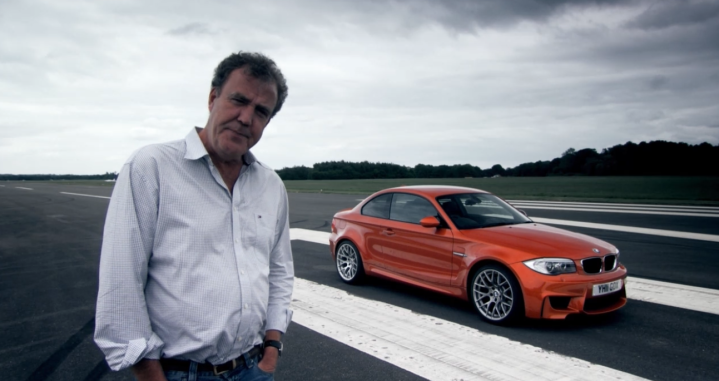
To recap how this all started, Clarkson allegedly threw a punch at a Top Gear producer during a “fracas” over not being served the dinner he wanted after a long day’s shoot. This has resulted in his suspension from the BBC along with the final three episodes of the show postponed indefinitely.
Among the buzz of supporters, The Mirror is reporting that the activist group Anonymous has threatened the BBC with a DDoS attack if Clarkson isn’t reinstated. This kind of internet attack overwhelms a website with traffic requests, effectively shutting it down.
The report claims that an open letter to the BBC made these claims, branding the hacker mission as #OpBringBackClarkson saying “You don’t wanna piss off 300 million people…” and “BBC you are warned… DDOS cannons will fire if you don’t comply.”
Sounds like Ol’ Clarkson has the might of internet justice behind him, doesn’t it? A closer look tells a slightly different story.
First off, there’s hardly an official source for a group called Anonymous for the obvious reasons, so its hard to peg for sure when someone is speaking on the organization’s behalf. Usually, associated twitter accounts like @YourAnonNews, which has over a million followers, indicate what’s trending amongst the cabal, and #OpBringBackClarkson really isn’t up there. Like, at all.
As of this writing, eleven people have used the hashtag on twitter. Eleven.
Looking at many of the Anonymous-branded twitter accounts and websites reveal that their uproar is more focused on things like the recent Ferguson protests and other serious issues of violence across the globe. Nobody is really talking about their favorite car show host.
Jeremy Clarkson,Top Gear host, suspension is not rightful decision. Anonymous demand to restore his position as usual pic.twitter.com/cUz1EuP4De
— Hiddenplot (@Hiddenplot) March 11, 2015
The Mirror’s article posts what seems to be the one Anonymous-related twitter post regarding the incident, but its handful of followers and tweets, in comparison to sources like @AnonyOps make it seem like an Anonymous fan rather than the voice of a movement.
Surely then, this “open letter” would have more information? It might if you can find it. For all this talk of an open letter, any searches and stories posted simply refer back to the original Mirror article, with no links going to the BBC-directed open letter. In fact, after searching for hours, the only way we found it was to tweet the author of the post himself, who shared with us this link:
The letter doesn’t say much else beyond what we quoted above, save for linking to the Change.org petition and the recanting of Anonymous “we are legion” maxim.
Pastebin is a great way to anonymously post text, but it doesn’t really work as an open letter forum unless you get the word out, and none of the Anonymous people are doing that, just The Mirror. We’re wondering if the BBC has even seen this.
Again, the tricky thing about dealing with a group called Anonymous is, well, they’re anonymous. We’re not suggesting that this threat is false, but the evidence indicating that it might be valid is sketchy at best.



